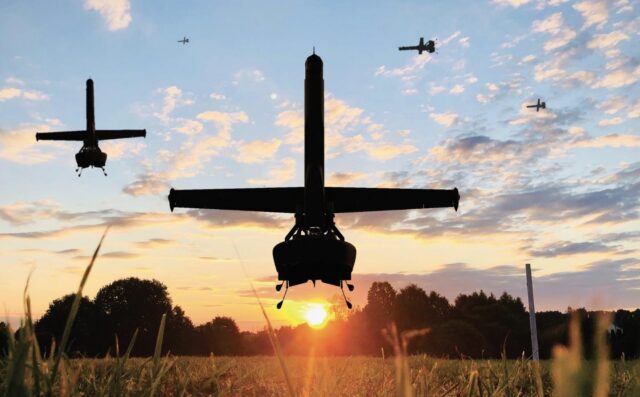
Safety trials of medical drones have successfully completed at Glasgow Airport for the transportation of essential medicines, bloods and other medical supplies throughout Scotland.
In the first national drone network of its kind, Project CAELUS, led by Ferrovial’s AGS Airports in partnership with NHS Scotland, has successfully completed live flight trials.
The aim is to deliver the UK’s first national medical distribution network using drones which will reach even the most remote communities.
CAELUS (Care & Equity – Healthcare Logistics UAS Scotland), is part funded by the UK Research and Innovation (UKRI) Future Flight Challenge.
It brings together 16 partners including the University of Strathclyde, NATS and NHS Scotland. Together they are working to deliver what will be the first national drone network that can transport essential medicines, bloods and other medical supplies throughout Scotland including to remote communities.
Medical drones
Since January 2020, the CAELUS consortium has designed drone landing stations for NHS sites across Scotland and developed a virtual model (digital twin) of the proposed delivery network for medical drones, which connects hospitals, pathology laboratories, distribution centres and GP surgeries across Scotland.
Fiona Smith, AGS Airports group head of aerodrome strategy and CAELUS Project Director, said: “These flight trials are an important step towards the integration of drones into modern airspace and enabling the safe use of drones at scale within Scotland’s airspace.
“The CAELUS project is set to revolutionise the way in which healthcare services are delivered in Scotland. A drones network can ensure critical medical supplies can be delivered more efficiently, it can reduce waiting times for test results and, more importantly, it can provide equity of care between urban and remote rural communities.”
Subscribe to the FINN weekly newsletter
You may also be interested in:
Glasgow Airport at the heart of testing diverse range of innovations
















